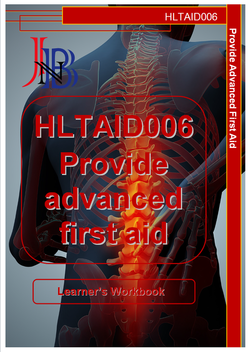|
From Jill Palmer: Mental Wellness Center
Disclosing to Others Ideally, the people around you will understand your illness and encourage you. But the important people in your life might not know much about mental illness. They may want to help you, but not know how to help. You can give friends and family a better chance to help by thinking ahead about how to tell them about your mental illness. Reasons to Talk with Others One reason to tell family and friends about your mental illness is to receive encouragement. Simply talking to someone sympathetic can reduce your stress level and improve your mood. You may also want to ask for concrete support, like help finding treatment or rides to appointments. Or maybe you want to share your crisis plan with a trusted family member. Maybe you have mixed feelings. You might be afraid loved ones will judge you or feel uncomfortable around you. It can be very stressful if you're afraid to tell people but feel pressure to do so. There's no right or wrong number of people to tell. Some people will benefit from telling many family and friends. Others may benefit by telling a couple of close friends and waiting to tell others. You are an expert on your own mental illness and can decide for yourself. If you're stressed about whether to tell other people, you might feel better if you write down a list of pros and cons. Maybe some people won't understand. But maybe you can also see benefits to telling the people who will understand. If you're afraid, the list of pros can remind you of the rewards of overcoming your fear. Joining a support group such as NAMI Connection can help you understand your own experiences through hearing others' stories. This support can also provide you with insights and tips for relationships of your own. When to Tell If you are compelled to disclose during a period where you are unwell, try to locate the most supportive person in your life. This person can help you through telling everyone else. Otherwise, the time to tell someone is going to depend on several things:
Who to Tell
Talking about mental illness can be risky. When thinking over the pros and cons of telling someone, also consider the pros and cons of not telling them. The positives and negatives are different for everyone and thinking them through can help you decide what's right for you. Being able to offer emotional support is not something that everyone knows how to do. It's a skill that takes practice. Some people may not be able to offer emotional support. If you have relatives or friends who lack this skill, that doesn't mean they don't love you. You might want to make a list of the people you're considering telling. Include the people you feel closest to. Also list the most emotionally skilled people you know, even if you don't know them as well. Consider the names. Which of your close friends and family are most skillful at offering understanding? Which ones are best at listening or giving a hug when you're down? What about the people who are good listeners? Which of these "A grade" people could you talk to? At Work In a job, you have to weigh the advantages against the disadvantages of being open. Consider the potential negative impact on things like stigma from coworkers against your need for special accommodations, which are considered part of your civil rights. Before you share information about your condition, you should learn about your legal rights and also take into consideration your work environment. In Personal Relationships In friendships or romantic relationships, generally, the consequences of being open about mental illness take one of three paths:
Knowing that certain people are aware of an important part of your life and that they accept you and support you can be incredibly helpful and liberating. While some people may disappear, it's better to have strong social supports around you. How and What to Talk About You can get the best support possible by planning the conversation. Consider including three items:
I'm scared to make an appointment because that's like admitting there's something wrong. But I need to see a doctor. Can you help me find one and follow through?"
0 Comments
By: Sarah Hand, M.Sc. It’s lunchtime in America, and 140 million of us are eating a meal away from home every day. That’s roughly 40% of the entire population. Every. Single. Day. One could argue then, that it’s nothing short of a miracle that only 1 in 6 of us will get sick in any given year from a foodborne pathogen. We’ve all read the 3,000 deaths per year statistic (CDC), but as a percentage of total meals eaten away from home, this number is thankfully lower than it could be. And yet, the high cost of addressing foodborne illness is alarming, especially when prevention is seemingly so simple.
Full disclosure: I am the GM of a food safety-driven organization that specializes in pre-moistened wipe solutions designed to prevent cross-contamination and limit foodborne disease. But for the purposes of this article, my occupation only serves as a vantage point from which to share observations that should concern us all. Are you looking at your cell phone or tablet right now? That’s how most of us consume megabytes and sound bites these days – often while we’re supposed to be doing something else. Dr. Charles P. Gerba, Professor, Microbiology & Environmental Sciences at The University of Arizona, has shared studies that these ubiquitous devices host as many as 25,000 germs per square inch, which is 500x the level found on the average public toilet seat. When was the last time you attended a meeting and didn’t see half the heads in the room looking down at a digital device at any given moment? In one of the key segments we aim to serve – foodservice retail – this is referred to as frictionless service. These tabletop tablet devices represent the growing ubiquity of electronic “conveniences” meant to assist (or distract) us, while we’re dining out. Ready for the reveal? They’re among the dirtiest, most dangerous things in the joint. The digital revolution may well make it easier or more fun to process your order. It may even make it easier to tolerate a night out with the kids. But these devices shouldn’t be an overlooked source of potential cross-contamination. If you think restaurant guests aren’t already noticing – think again. A simple review of popular social media and review sharing sites reveals growing alarm over these devices. A sampling from Yelp!: One customer writes, “It’s dirty and disgusting. I mean how many dirty chip eating fajita hands have touched the screen before me today?? It distracts my kid during dinner and since he’s a toddler I have no choice but to give it to him otherwise he throws a fit.” “My whole family already has mobile devices that we brought ourselves, and each one is personalized for each of us with the games we like. And my mobile device only has my germs on it. I don’t see my wife letting my kids touch it,” writes another restaurant reviewer. A few months ago, Sani Professional® began taking readings with Hygiena’s ATP device across a wide range of food-service outlets, including 88 chains in the NRN Top 100. Close to 200 readings were taken before – and then after – a simple, one-wipe treatment of a variety of restaurant surfaces. As you may be aware, the ATP device is designed to measure RLUs, broadly referred to as “bioburden” present on a swabbed area. Our RLU counts across all surfaces averaged 557 (classified as “Very Dirty” by Hygiena). After just one treatment with an all-purpose cleaning wipe (no active, germ-killing ingredient) this level was reduced to an average of 131! To repeat, that’s after just one wipe down. Now, for the electronic devices alone, the average reading was 632 RLUs. That’s 13.5 percent higher than all surfaces. And the average bioburden level was reduced to 138 after using the cleaning wipe. One cleaning wipe treatment, across all tested surfaces, netted roughly a 77 percent decrease in potentially harmful microorganisms. We offer this information as food for thought (pun intended). While these digital devices continue to grow in presence across the foodservice landscape, in both front and back-of-house operations, do we not have a shared responsibility to address what is clearly an emerging “hot spot” demanding intervention? We think so – especially when addressing the concern is so simple.  This unit deals with the skills and knowledge required to provide an advanced first aid response, including management of the incident and other first aiders, until the arrival of medical or other assistance. The unit applies to workers who may be required to provide, coordinate and manage a first aid response across a range of complex situations, include community and workplace settings. Specific licensing requirements relating to this competency, including requirements for refresher training, should be obtained from the relevant state/territory Work Health and Safety Regulatory Authority. What is included in the package? The course we have produced includes the following:
 Mind Detox Practitioner and Life Coach Debbie Spellman shares three ways to Detox Your Mind this Summer to set you up for a great New Year! Summer is the time of year where everything slows down being ideal for reflection, relaxation and restoration. Use these three tips to help detox your mind from anxiety and stress and to stabilise your emotions for more peace of mind. Thoughts are just thoughts Every moment of every day you are thinking, in fact 50 – 70,000 thoughts go through your mind each day. Your brain is continuously assessing, analysing and processing all that is happening. The problem is many of us get caught up in our thinking, from worry to fear or even doubt and we may find ourselves struggling to snap out of this. The truth is thoughts are just thoughts. Yet it’s the meaning we give to these thoughts, which cause us to feel our negative emotions. We therefore label this as ‘negative thoughts’. Here are three ways to help you manage an overactive mind:
Emotions are energy in motion. They are more than just a feeling – they activate hormonal responses and other nervous and cardiovascular system reactions - for this reason it’s important for your health and wellbeing to activate a positive state of mind. Rather than repressing, expressing or avoiding your negative emotions it is important to recognise and address each emotion as it arises. Repressed emotions not dealt with may cause imbalances in the body so when a negative emotion arises follow the below process:
You have the ability to choose the way you will react and interact in your life. Many of us play the victim and believe difficult circumstances and people are the cause of our misery. However when you put people in control of your emotional state and fail to take any responsibility for how you are reacting and behaving what you are essentially saying is that they are in control of how you feel. When a situation occurs before you react negatively ask yourself these four questions to help you manage your emotional response:
Debbie is a Mind Detox Therapist, Life Coach and Master Trainer for the Mind Detox Academy. She has been featured in Women’s Day, Cosmopolitan, Dolly and Women’s Fitness Magazine and her message reaches women in over 10 countries. Debbie is a featured 'Self-Worth' expert in Girlpower, the Think Fit expert for Women’s Fitness Magazine and an Ambassador for Sun Warrior.  HCF - Stay Fit and Well Extreme temperatures or simply exposure to too much sun can have serious effects. Here’s a guide to the symptoms of heat-related conditions and how to treat them. Everyone should take extra care during very hot weather but some people are more at risk of being badly affected, South Australia's Department of Health warns. These include the elderly and very young, as well as pregnant women and people with medical conditions or on medications that limit their ability to sweat. Heat illnesses range from easily managed to life threatening, so it's important to be able to recognise them and respond appropriately. Dehydration symptoms include profuse sweating and being thirsty. Immediate treatment includes:
|
Archives
December 2017
Categories
All
|


 RSS Feed
RSS Feed